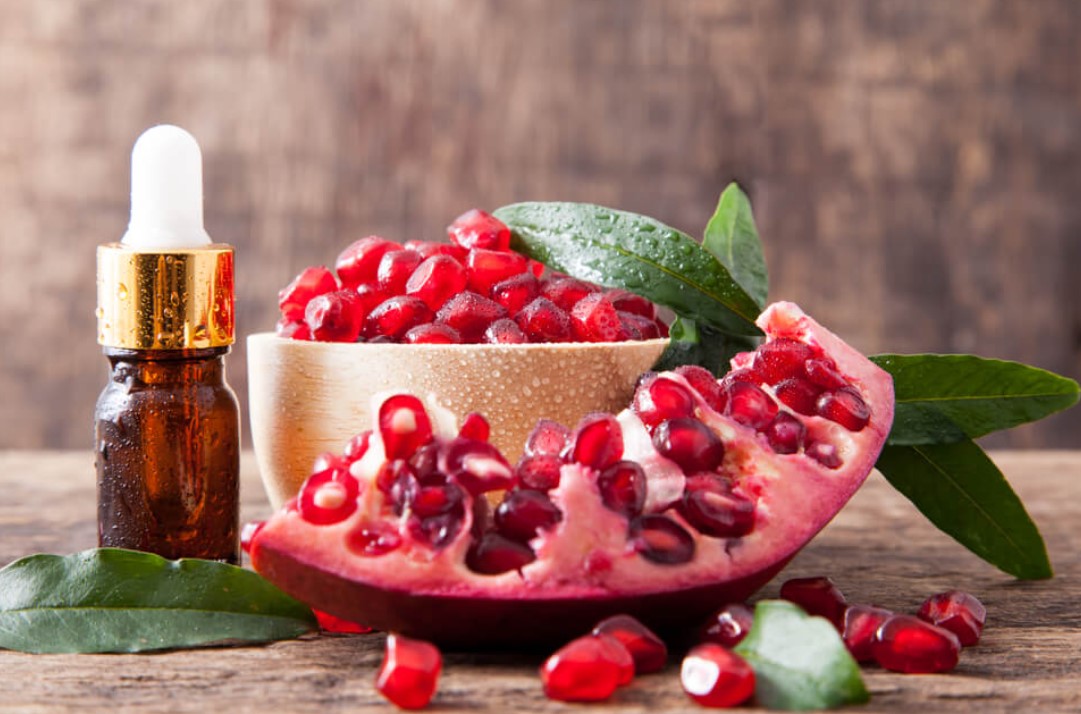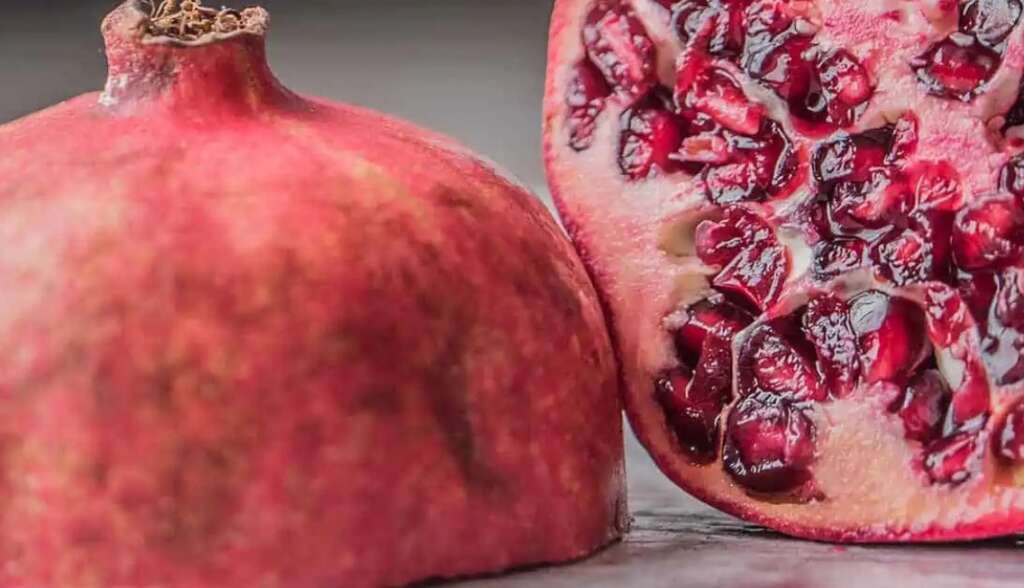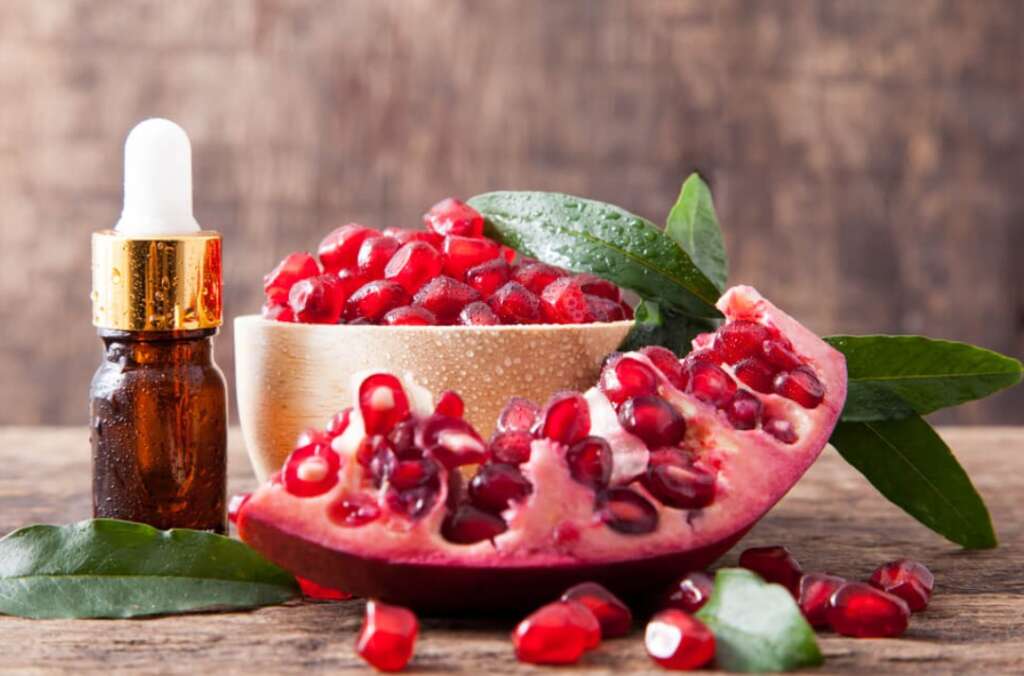
Pomegranate Benefits
Pomegranate benefits come in many forms, ranging from antioxidants to anti-aging and skin health. When you add a pomegranate to your diet, you will be doing yourself a huge favor by promoting a healthy, active lifestyle. You will also be giving yourself a head start against disease and aging, since the fruit has a high concentration of antioxidants.
Antioxidants
Pomegranate is a ruby-red fruit that contains several antioxidants. These include quercetin, punicalagin, and polyphenols. The polyphenols, in particular, are potent antioxidants. Polyphenols are a class of phytochemicals that exhibit a wide variety of biological activities.
Pomegranate is one of the most nutritious fruits. It is rich in potassium, iron, and other important vitamins and minerals. In addition to its high potassium content, it is also a good source of vitamin C and K.
Pomegranate juice is an excellent source of antioxidants, which are essential to your body’s ability to fight oxidative stress. These substances protect the body from diseases like cancer and heart disease.

Anti-ageing
Pomegranate is a fruit which has been studied extensively for its antioxidant properties. These antioxidants are used to fight free radicals which damage the body’s cells. Oxidative stress is a major contributor to many diseases, including cardiovascular disease.
Pomegranate juice and extracts are known to have positive effects on the heart and prostate. It has also been found to have anti-inflammatory effects. Some studies have shown that it may help prevent heart disease, reduce systolic blood pressure, and improve metabolic health.
The anti-ageing benefits of pomegranate may be attributed to its phenolic compounds. Polyphenols are water-soluble compounds that have the ability to scavenge free radicals and protect DNA.
Skin health
Pomegranate is an extremely powerful antioxidant that can fight free radical damage and promote cell regeneration. In addition, it helps skin heal and retain moisture, preventing roughness and sagging skin. It is also a great exfoliant and works well to improve blood circulation and cell turnover.
Pomegranate is rich in anthocyanins, antioxidants, and tannins. These antioxidants have antibacterial, anti-inflammatory, and antiseptic properties. They can help reduce redness and hyperpigmentation caused by acne, sunburn, or other skin problems.
The polyphenols in pomegranate protect skin cells from oxidative damage and boost collagen production. This improves skin tone, elasticity, and radiance.
Using pomegranate seed oil on your face can reduce redness from acne and other damage. It is non-greasy and absorbs quickly. You can also use pomegranate as a hair massage oil.
Sequestering carbon
Pomegranate is a fruit that has many benefits. It is packed with nutrients and antioxidants. In addition, it has been proven to have anti-carcinogenic and anti-inflammatory properties. Moreover, it is believed to reduce serum angiotensin-converting enzyme. Besides, it is said that it may prevent memory impairment. There is also evidence that pomegranate juice can be heart-protective.
The pomegranate tree is one of the most important fruit crops in California. Due to the high salinity tolerance of the fruit, pomegranate production has become a promising specialty crop in the state. However, the drought in California has caused a lot of problems to pomegranate cultivation.
Blood flow throughout the body
Pomegranate has been shown to have a number of cardiovascular benefits, including lowering blood pressure. It also prevents atherosclerosis, a disease that damages the lining of the arteries. In addition, pomegranate has been shown to improve memory and learning.
Pomegranate has antioxidant properties that may protect against cardiovascular disease, cancer and other health conditions. The antioxidants present in pomegranate may be particularly beneficial to those with diabetes, as they protect the cardiovascular system from the damage that diabetes can cause. However, you should consult your doctor before consuming any fruit juices.

Pomegranate has been shown to increase the amount of nitric oxide synthase enzymes, a key enzyme that plays a key role in nitric oxide production. Nitric oxide is a powerful vasodilator, a substance that dilates blood vessels and enhances the flow of blood. Moreover, it deters blood cell adhesion, which can help prevent the development of atherosclerosis.
Helps fight Alzheimer’s disease
The juice of pomegranate is rich in antioxidants that have been shown to protect against Alzheimer’s disease. It is also believed that the fruit contains punicalagin, which is a polyphenol chemical compound that has been shown to protect against inflammation, which is a leading cause of the development of dementia.
Pomegranate has also been shown to prevent the formation of amyloid plaques in the brain. This is important, since the amyloid proteins that cause the symptoms of Alzheimer’s disease are prone to build up in the brain, causing damage.
Pomegranate has been studied extensively in animal models of Alzheimer’s disease, with many studies pointing to the positive effects of the fruit’s polyphenols. Scientists are still not sure which compounds are responsible for pomegranate’s protective properties.


